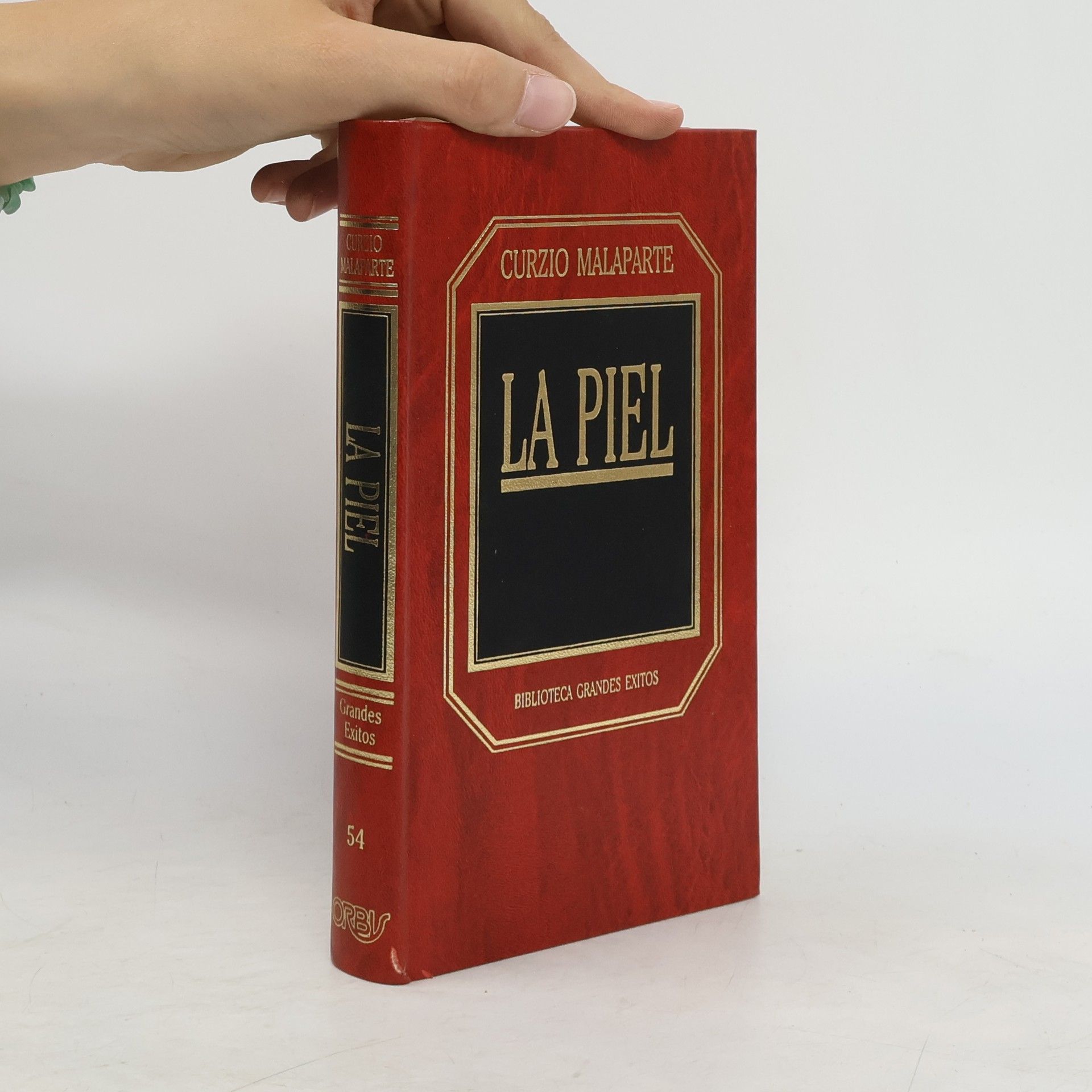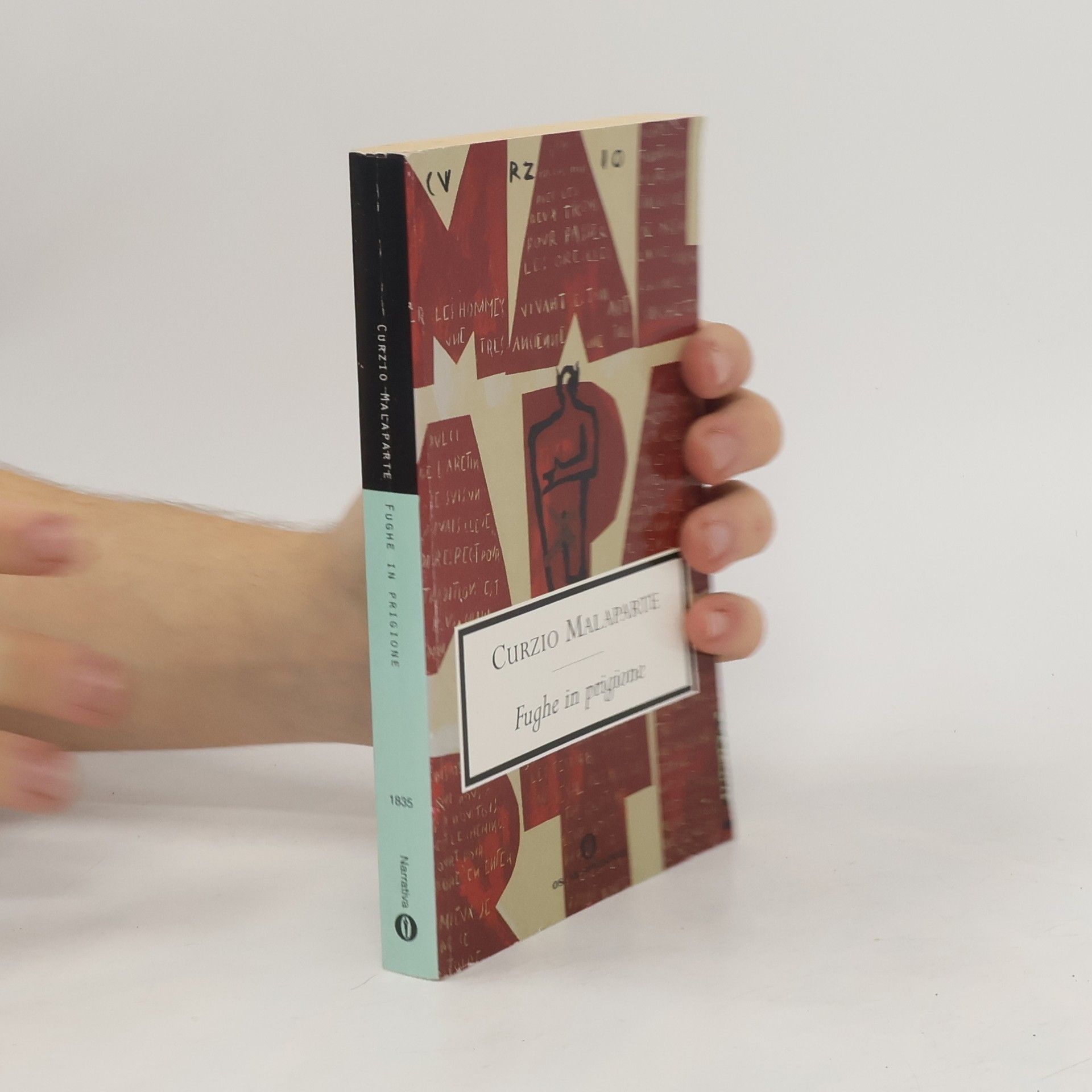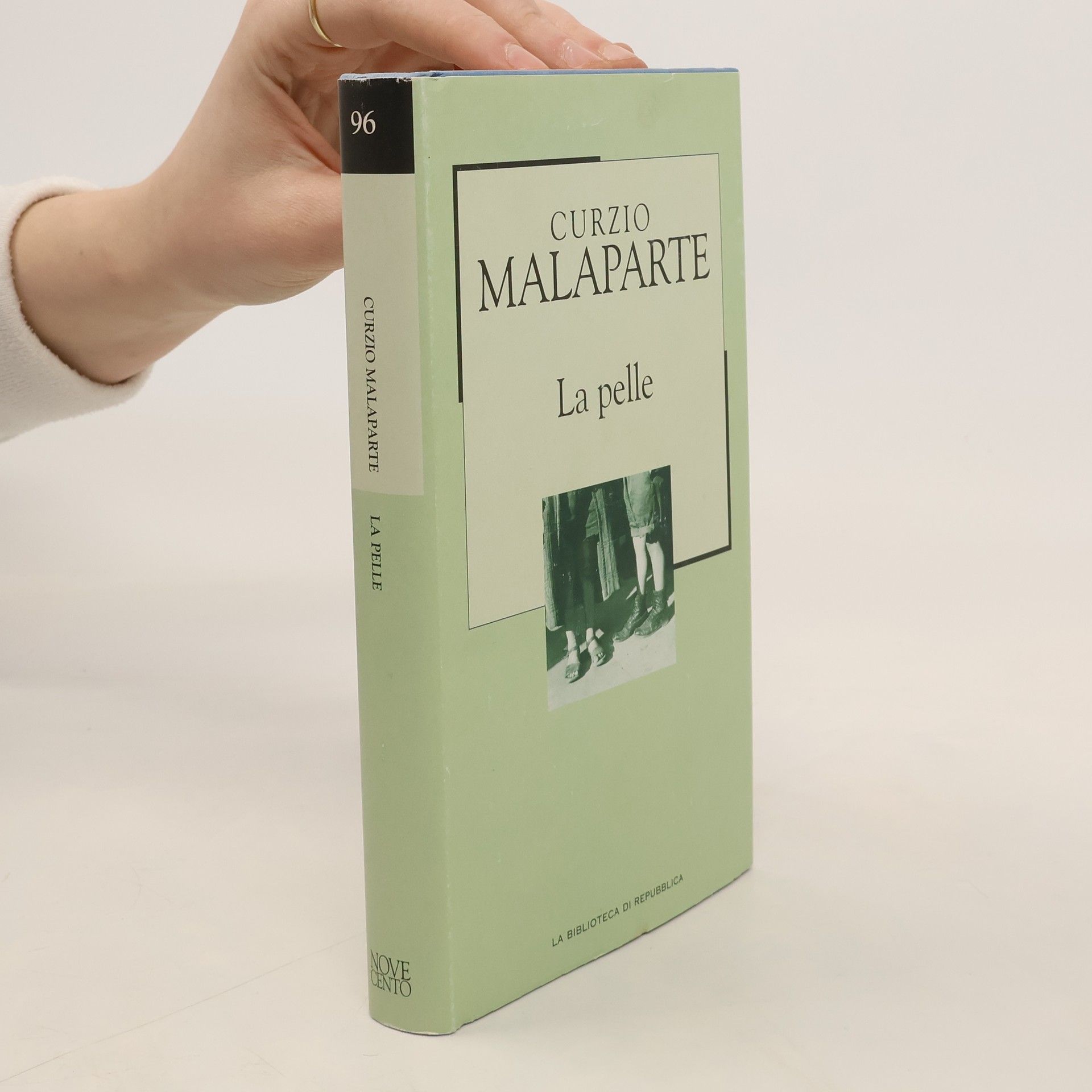Ako frontový zpravodajca talianskych novín vo svojom diele dokonale využíva atmosféru opisovaného prostredia. Majstrovsky rozpráva neuveriteľné kruté udalosti a v ostrých psychologických záberoch postihuje nehumánne zmýšľanie nemeckých nadľudí a ich prívržencov. Vytvoril zároveň román i reportáž, hlboko pravdivé a sugestívne dielo, otrasné svedectvo okupovaných národov, panstvo ukrutnosti, cynizmu a neľudskosti za druhej svetovej vojny.
Curzio Malaparte Knihy
Tento taliansky autor, preslávený svojimi ostrými postrehmi a provokatívnym písaním, skúma temné stránky ľudskej povahy a zložitosť medzivojnovej Európy. Jeho diela, často zakorenené v jeho vlastných rozsiahlych skúsenostiach ako novinár a diplomat, vynikajú nekompromisným pohľadom na politiku a spoločnosť. Prostredníctvom svojho jedinečného štýlu zachytáva napätie a iróniu doby a ponúka čitateľom prenikavé a znepokojujúce reflexie. Jeho tvorba zostáva silným svedectvom o komplexnosti sveta a ľudských motivácií.




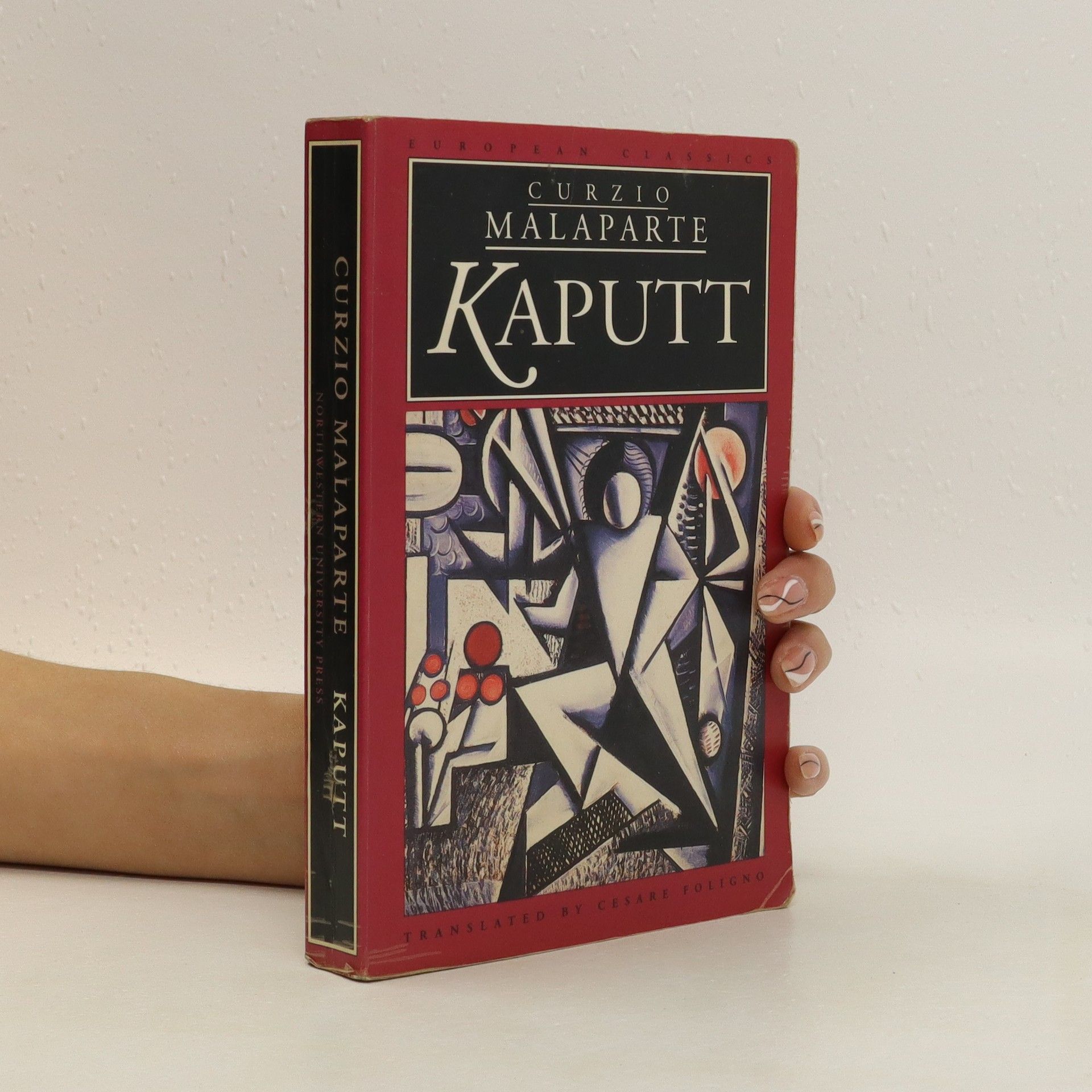
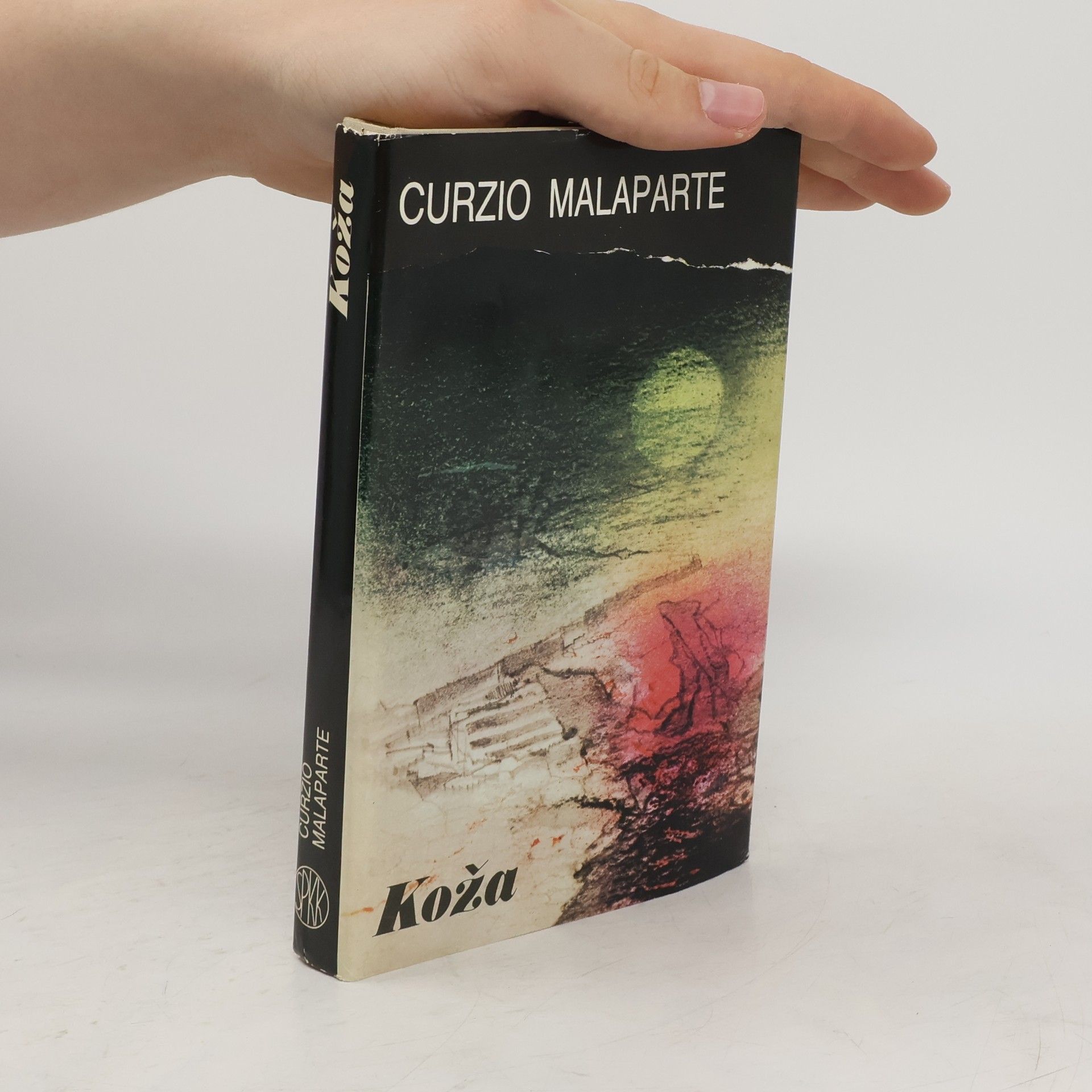
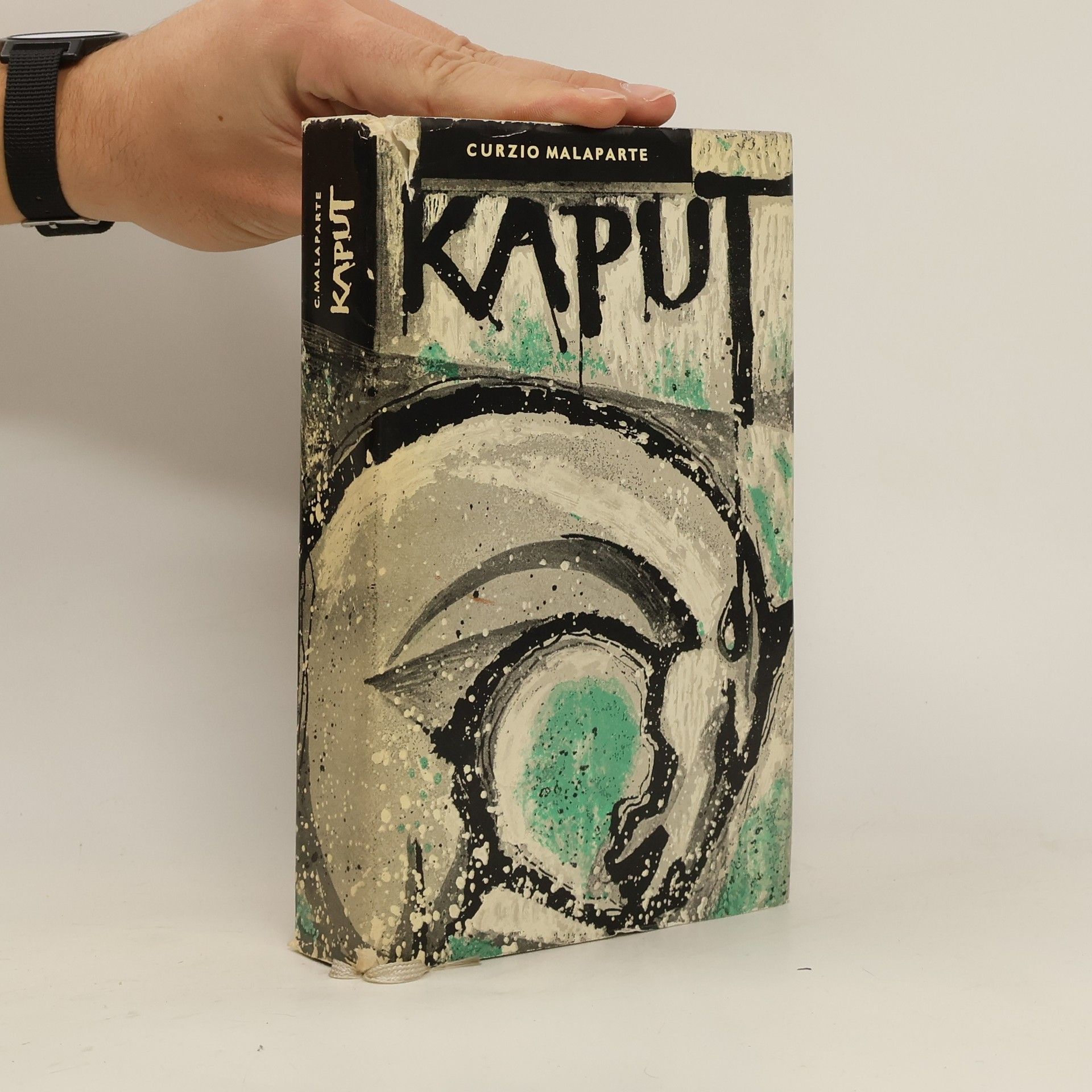
Slovenskému čitateľovi nie je meno talianskeho spisovateľa a publicistu Curzia Malaparteho neznáme. Roku 1965 vyšiel vo Vydavateľstve politickej literatúry jeho prvý mimoriadne úspešný a známy román Kaput. V oboch svojich rozsiahlych dielach Malaparte s neobyčajnou odvahou, vtipom a pútavosťou akojeden z prvých európskych spisovateľov neľútostne strhával masku z tváre nemeckého nacizmu, ale aj osloboditeľskej americkej armády. Irónia, miestami trpká i smutná, i ostrý výsmech amerických vojakov v oslobodenom Neapoli sú o to živšie, pravdivejšie a úprimnejšie, že autor ich hlboko precítil takpovediac priamo ,,v teréne“ ako styčný dôstojník a tlmočník pri Piatej armáde. Všeobecný morálny rozklad znásobujú a rozsievajú vojaci, ktorí neprichádzajú ako skutoční osloboditelia, keďže oslobodzujú len napoly, od fašistickej pliagy, zatiaľ čo na druhej strane prinášajú anarchiu. Nevraždia obyvateľstvo, ani ho neterorizujú, ale hlboko a drsne zraňujú psychiku, najvnútornejšie vnútro oslobodených Talianov, čím len iným spôsobom mrzačia ľudskú dôstojnosť. Túto tragickú i tragikomickú skutočnosť odhaľuje Malaparte s neúprosnou, drsnou a až naturalistickou pravdivosťou.
Kaputt
- 407 stránok
- 15 hodin čítania
Curzio Malaparte was a disaffected supporter of Mussolini with a taste for danger and high living. Sent by an Italian paper during World War II to cover the fighting on the Eastern Front, Malaparte secretly wrote this terrifying report from the abyss, which became an international bestseller when it was published after the war. Telling of the siege of Leningrad, of glittering dinner parties with Nazi leaders, and of trains disgorging bodies in war-devastated Romania, Malaparte paints a picture of humanity at its most depraved. Kaputt is an insider's dispatch from the world of the enemy that is as hypnotically fascinating as it is disturbing.
The Skin
- 343 stránok
- 13 hodin čítania
This is the first unexpurgated English edition of Curzio Malaparte’s legendary work The Skin. The book begins in 1943, with Allied forces cementing their grip on the devastated city of Naples. The sometime Fascist and ever-resourceful Curzio Malaparte is working with the Americans as a liaison officer. He looks after Colonel Jack Hamilton, “a Christian gentleman . . . an American in the noblest sense of the word,” who speaks French and cites the classics and holds his nose as the two men tour the squalid streets of a city in ruins where liberation is only another word for desperation. Veterans of the disbanded Italian army beg for work. A rare specimen from the city’s famous aquarium is served up at a ceremonial dinner for high Allied officers. Prostitution is rampant. The smell of death is everywhere. Subtle, cynical, evasive, manipulative, unnerving, always astonishing, Malaparte is a supreme artist of the unreliable, both the product and the prophet of a world gone rotten to the core.
The Kremlin Ball
- 223 stránok
- 8 hodin čítania
"Perhaps only the impeccably perverse imagination of Curzio Malaparte could have conceived of The Kremlin Ball, which might be described as Proust in the corridors of Soviet power. The book is set at the end of the 1920s, when the Great Terror may have been nothing more than a twinkle in Stalin's eye, but when the revolution was accompanied by a growing sense of doom. In Malaparte's vision it is from his nightly opera box, rather than the Kremlin, that Stalin surveys Soviet high society, its scandals and amours and intrigues among beauties and bureaucrats, including the legendary ballerina Marina Semyonova and Olga Kameneva, a sister of the exiled Trotsky, who though a powerful politician is so consumed by dread that everywhere she goes she gives off the smell of rotting meat. This extraordinary court chronicle of Communist life (for which Malaparte also contemplated the title God Is a Killer) was published posthumously and appears now in English for the first time"--
Diary of a Foreigner in Paris
- 360 stránok
- 13 hodin čítania
Every "diary" serves as a portrait, chronicle, or history, capturing moments that reflect a broader narrative. Unlike random notes, a true diary tells the story of a life, marked by beginnings, middles, and ends. Life itself unfolds like a tale, with a structured progression rather than mere chance. The subject of this diary revolves around my return to Paris after fourteen years, exploring a transformed France and its people. It captures a specific moment in the history of the French nation that aligns with a pivotal time in my own life. I do not claim to innovate within the diary genre; rather, I propose that a diary functions as a narrative, akin to a play. It embodies the essence of storytelling, where every element leads toward a conclusion, adhering to classical unity, while focusing on the character of "I." This diary represents a theatrical work brought to the page, echoing Kafka's concept of the "present moment" as it unfolds. Ultimately, my diary seeks to bridge the gap between narrative and theater, presenting a unique perspective on personal and national stories.
Biblioteca Grandes Exitos - 54: La Piel
- 284 stránok
- 10 hodin čítania
Legenda Lenina
- 232 stránok
- 9 hodin čítania
Malaparte, nel settembre del 1931, confida all'amico Halévy il suo obiettivo di presentare un Lenin diverso da come è percepito in Europa. La sua ambizione è mostrare Lenin attraverso gli occhi dei «Russi intelligenti», analizzando il fenomeno secondo la sua logica, come già fatto in precedenza. Il suo nuovo libro, pubblicato a Parigi nel 1932, avrà un impatto sorprendente. Qui, Lenin non è il Gengis Khan proletario, ma piuttosto un piccolo borghese, freddo e riflessivo, sedentario e burocratico. Con un'immaginazione meticolosa e una «crudeltà platonica», è ostile al romanticismo terrorista e incapace di agire al di fuori della teoria. Si sente più a suo agio nelle discussioni politiche e nelle faide personali che nel confronto con la realtà. Lenin appare come un europeo medio, un uomo violento e timido, un «funzionario puntuale e zelante del disordine», un fanatico e opportunista, per cui la rivoluzione è una questione interna di partito, frutto di calcoli ossessivi. Quando, una volta al potere, non può più osservare gli eventi da lontano, si trova costretto a confrontarsi con la realtà, decidendo di inventarla e imporla a se stesso, ai suoi collaboratori, al popolo russo, alla rivoluzione proletaria e al futuro dell'Europa.
Fughe in prigione
- 289 stránok
- 11 hodin čítania
Pubblicate in varie edizioni, nel 1936, nel 1943 e, infine, nel 1954 (quella qui riproposta), queste "Fughe in prigione" sono state scritte durante i periodi trascorsi da Malaparte nel carcere romano di Regina Coeli e al confino di Lipari, dove venne inviato per i suoi atteggiamenti liberi, provocatori, non allineati al regime fascista, che anzi attaccò violentemente. A queste pagine del tempo di prigionia Malaparte volle aggiungere alcuni testi scritti in Francia e in Inghilterra poco prima dell'arresto. Si tratta di memorie, riflessioni di carattere culturale, studi letterari nei quali l'autore sembra cercare un rifugio e una via di fuga per lo spirito.
La Biblioteca di Repubblica - 96: La pelle
- 315 stránok
- 12 hodin čítania
Un viaggio allucinato e infernale nella Napoli appena liberata dagli americani, un susseguirsi di storie al limite della visionarietà nei meandri di una città distrutta, sfinita, quasi in putrefazione, una grottesca rappresentazione del dolore, della bestialità, della miseria e della turpitudine: il romanzo-scandalo di Curzio Malaparte pare voler colpire con tutti i mezzi a disposizione le pigre coscienze dei lettori, proponendo un vasto e terrorizzante campionario di orrori e di abiezioni. Dal pranzo del generale Cork, in cui viene imbandita una bambina, alla vendita della ragazzina ancora vergine, al frenetico sabba omosessuale della “figliata”, si delinea a poco a poco un universo oscuro e perverso, che ha smarrito il senso della distinzione fra bene e male, e che tutti ingloba, sia vincitori che vinti, in un vischioso e insensato Nulla, ove l’unica cosa che resta da fare è «lottare e soffrire per la propria pelle».
